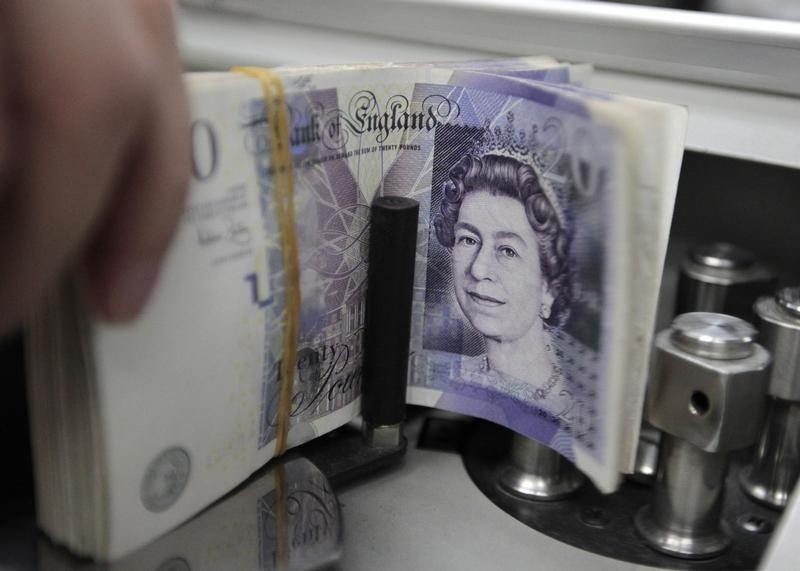By Andy Bruce and Ana Nicolaci da Costa
LONDON (Reuters) - British public finances recorded the worst deficit for any October since 2009, making it more likely Chancellor George Osborne will miss his annual borrowing target, as he prepares for a major spending review next week.
Official data on Friday showed Britain's headline public borrowing rose to 8.2 billion pounds in October from 7.1 billion pounds a year earlier, higher than all forecasts in a Reuters poll that predicted borrowing of only 6.0 billion pounds.
While government borrowing in the current 2015/16 financial year is 11 percent less than it was at the same point in 2014, progress has been slower than Osborne might have hoped.
Economists said the figures made it more likely that the Office for Budget Responsibility will bump up its forecast for government borrowing this fiscal year, when Osborne outlines his comprehensive spending review next Wednesday.
"For three consecutive months now the path of borrowing has drifted in the same direction and so we stand by our expectation that borrowing will be revised up," Sam Hill, economist at RBC, said.
Osborne said in July he aimed to cut the budget deficit this year to 69.5 billion pounds -- or 3.7 percent of gross domestic product -- from 89.2 billion pounds in the 2014/15 year ending March.
To meet this target, government borrowing would have come in at 15.2 billion pounds or less from November through March.
Local authorities have needed more cash than expected, but some of the figures for central government finances have softened too, said Hill.
Other current spending, which comprises mainly departmental spending, was up 1.4 billion pounds compared with October 2014. Debt interest payments were 0.3 billion pounds higher.
A government spokeswoman said the figures showed the job of fixing the public finances is not done yet.
Since his Conservative Party won an outright majority in May's national election, finance minister Osborne has intensified his focus on deficit reduction, and wants the country to run a budget surplus by 2019/20.
Osborne will on Wednesday publish details of how government departments will cut spending by around 20 billion pounds over the next four years.
The plans are certain to be opposed by the Labour Party's new leader Jeremy Corbyn, who said in his leadership campaign that there should be more public investment, and that there was no need to balance the budget within the next five years.
Until late last year, strong economic growth had failed to translate into much of an increase in tax revenues, but since then an increase in the number of people in work and a gradual pick-up in wages have boosted revenue.
Income tax is up 4.3 percent so far this fiscal year versus the same point in 2014.

So far Osborne has had little difficulty making large spending cuts, but many economists say further hefty reductions in spending on public services and welfare are likely to become harder, as the easiest cuts have already been made.